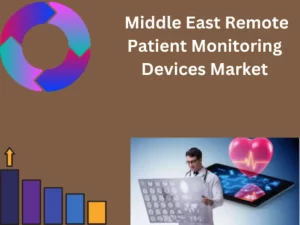© 2024 All rights reserved
Datavagyanik- Your Research Partner

There is demand for remote patient monitoring (RPM) in the Middle East region due to several factors, including:

In conclusion, the demand for RPM in the Middle East region is driven by factors such as the ageing population, the high burden of chronic diseases, a need to improve access to healthcare, cost savings, and the desire to enhance the quality of care.
The region also has a high population with a high prevalence of lifestyle diseases, which is further contributing to market growth. The governments of countries such as Saudi Arabia and the UAE are introducing various initiatives to promote the adoption of advanced healthcare technologies. This, in turn, is expected to drive market growth in the region.
Some of the major players operating in the Middle East remote patient monitoring device market include Medtronic, Philips Healthcare, OMRON, Honeywell Life Care Solutions, and AliveCor. These companies are focusing on strategies such as product launches, collaborations, and partnerships to increase their market presence in the Middle East.
Remote patient monitoring (RPM) devices are medical devices that allow healthcare providers to monitor patients remotely and collect patient health data outside of a traditional clinical setting.
In summary, RPM devices include vital sign monitors and special monitors, as well as other types of medical devices that can be used to remotely monitor patients and collect health data. These devices play an important role in enabling healthcare providers to provide ongoing care and support to patients, even when they are not physically present in a clinical setting.
In the Middle East, some of the most common RPM devices used include blood pressure monitors, pulse oximeters, heart rate monitors, and glucose monitors. These devices can be used to collect vital sign data and track disease progression, which can help healthcare providers make more informed decisions about treatment and management.
Despite its potential benefits, the adoption of RPM in the Middle East region faces some challenges, such as the high cost of these devices and a lack of regulatory frameworks. Nevertheless, many healthcare providers are exploring innovative ways to overcome these challenges and incorporate RPM into their practices, driven by the recognition of its potential to improve patient outcomes and reduce the burden on the healthcare system.
In conclusion, RPM has significant potential to enhance healthcare delivery in the Middle East, but more work is needed to overcome the challenges and fully realize its benefits.
Saudi Arabia is one of the leading countries in the Middle East region for remote patient monitoring devices. The country has seen a significant rise in the demand for these devices due to its growing population and increasing healthcare expenditure. The government of Saudi Arabia has also been actively promoting the use of remote patient monitoring devices to improve healthcare services and reduce costs. This has resulted in an increased adoption of these devices by hospitals, clinics, and other healthcare providers.
The UAE has a large population of expatriates and tourists, which has led to an increased demand for healthcare services. This has resulted in the need for advanced medical technologies such as remote patient monitoring devices. These devices allow healthcare providers to monitor patients remotely, providing them with real-time data on their health status. This helps healthcare providers to provide better care and reduce costs associated with hospital visits.
The middle east remote patient monitoring devices market has been segmented into products and applications.
Based on the product type, the middle east remote patient monitoring devices market vital sign monitors and special monitors. In 2021, special monitors held a significant revenue share. In 2021, special monitors held a significant revenue share. This revenue is driven by the increasing demand for personalized healthcare, the need for remote patient monitoring, and the growing awareness of the benefits of using special monitors. Additionally, the decreasing price of these devices has made them more accessible to the public. Special monitors are technology-based devices that allow for the real-time monitoring of various physiological parameters, such as vital signs, blood pressure, and heart rate. They are used in healthcare settings to track the health and well-being of a patient.
Based on Applications, the market is classified as cancer, cardiovascular diseases, diabetes, sleep disorder, weight management and fitness monitoring, bronchitis, infections, virus, dehydration, and hypertension. In 2021, the segment is expected to account for a significant share of diabetes. This is because of the increasing prevalence of obesity and an ageing population with an increased risk of diabetes. Furthermore, technological advancements in diagnostics and therapeutics are likely to contribute to the growth of this segment. For example, the development of artificial pancreas systems that can sense glucose levels and adjust insulin delivery accordingly is likely to drive market growth.
By Product Type
By Application
By Region
“Every Organization is different and so are their requirements”- Datavagyanik







© 2024 All rights reserved
Datavagyanik- Your Research Partner
Add the power of Impeccable research, become a DV client